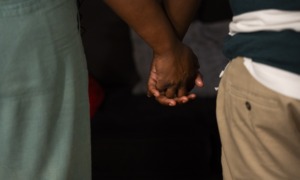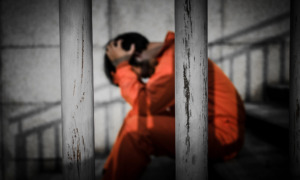***The big news: Veteran juvenile justice reporter Ted Gest broke the story on The Crime Report today that the Obama administration has backed off its proposal to change the way the Justice Department would offer funds to states for juvenile justice purposes.
Traditionally, a sizable amount of the juvenile justice funds from the Office of Juvenile Justice and Delinquency Prevention goes directly to states, partially in a formula grant and partially in a block grant. The formula funds are to a large extent contingent upon compliance with the four core requirements of the Juvenile Justice and Delinquency Prevention Act; the block grant is given out each year to every state, regardless of how good or lousy they are on juvenile justice.
Obama’s initial proposal was to take all of that money ($120 million for 2012), make it a competitive grant process, and make compliance with JJDPA the criteria just to compete for some of it.
Gest reported this morning: “Assistant Attorney General Laurie Robinson told the House subcommittee that funds the Justice Department on Wednesday that the White House would come up with a new plan that allocates 90 percent of federal aid to improve juvenile justice by formula to the states.”
OJJDP clarified the revisions in a statement on its website this afternoon:
“The Administration has developed an alternative to its original Race to the Top-style incentive grants program and is now proposing that the $120 million in the budget could be allocated in the following fashion:
- $110 million as formula funding
- $80 million under Title II, Part B of the JJDP Act–Formula Grants program
- $30 million under the Juvenile Accountability Block Grants (JABG) program
- $10 million in a demonstration program to encourage innovation and juvenile justice system improvements.
Amazing turn of events. About a month ago, there was panic that attention to JJDPA compliance would wither. Now, compliance might become more important than it was before the proposal.
***Meanwhile, some new 2011 funding opportunities listed by OJJDP:
Community-Based Violence Prevention Demonstration Program
For: Replication of proven, community-based strategies for reducing violence.
Eligible: States and local government only.
Deadline: May 23
Money: Up to $2.2 million for a three-year period; no indication of how many will be granted.
Match requirement: None.
Mentoring for Youth with Disabilities Initiative
For: Mentoring youth with mental disabilities, whom “research suggests” are more likely to engage in delinquency and other negative behaviors.”
Eligible: Government, nonprofits, colleges and universities, and a for-profit that was willing to forgo profit on this program.
Deadline: May 16.
Money: $300,000 for a three-year period; no future grants are expected for this in subsequent years.
Match: None.
State Juvenile Justice Formula and Block Grants Training and Technical Assistance Program
For: A cooperative agreement with OJJDP to provide “training and technical assistance to state and local juvenile justice formula and block grantees and subgrantees to assist them in planning, establishing, operating, coordinating, and evaluating delinquency prevention and juvenile justice systems improvement projects.”
Eligible: Government, nonprofits, colleges and universities.
Deadline: May 16.
Money: $2.2 million; one winner.
Match: None.
***Weird that the training and technical assistance solicitation is out there, no? Administration proposes to replace both of those funding streams in 2012, although as mentioned, the White House did change that proposal today.
*** On May 5-6, OJJDP and the International Association of Chiefs of Police (IACP) will co-sponsor a training designed to help law enforcement officers respond more effectively in policing situations that involve contact with girls ages 12 to 17. The training is for law enforcement officers and it is free, provided you can get yourself down to Dallas for it.
IACP has other juvenile justice-related trainings planned for the near future on interrogation, school safety, tribal collaboration with law enforcement and managing juvenile operations. Click here for more information on those.
***Another training of note: The Juvenile Law Center will host a three-part webinar on how to use the Information Sharing Tool Kit, which was developed as part of the MacArthur Foundation’s Models for Change juvenile justice reform initiative. The tool kit, which you can download here, is designed to help systems share information for individual case planning, for policy and program development, and for outcome evaluation and measurement.
The webinars will take place on April 4, April 8 and April 11.
***Day number 801 without a nominee from the Obama administration to serve as administrator of the Office of Juvenile Justice and Delinquency Prevention.
“I can’t believe it’s so low a priority,” said James Bell, executive director of the W. Haywood Burns Institute, which helps communities address racial disparities in their juvenile justice systems.
“I know it’s busy, but I also know by now, Republicans would have put somebody in” the OJJDP job, Bell said. “I’m just dumbfounded this has become such a low priority.”
***Following the U.S. Supreme Court’s 2010 ban on life without parole for juveniles convicted of anything other than a homicide, we reported that the decision in Graham v Florida would certainly lead to attempts to widen that ban to include juveniles with homicide convictions.
The first attempt to expand on Graham in state court has, so far, been a loser. As Holly Herman of The Reading Eagle reported this week, the Pennsylvania Superior Court ruled against two inmates seeking to have life without parole sentences vacated for homicides they committed as juveniles. The appeal of the two men was based largely on the recent ban on life without parole sentences for juveniles convicted of non-homicides, which was imposed by the U.S. Supreme Court.
The Pennsylvania Supreme Court is already poised eventually to hear arguments in two other cases related to LWOP for juvenile homicide convictions. Qu’eed Batts was convicted of first-degree murder, and Ian Cunningham was convicted of second-degree murder. Both are appealing LWOP sentences for murder on Eighth Amendment grounds.





























